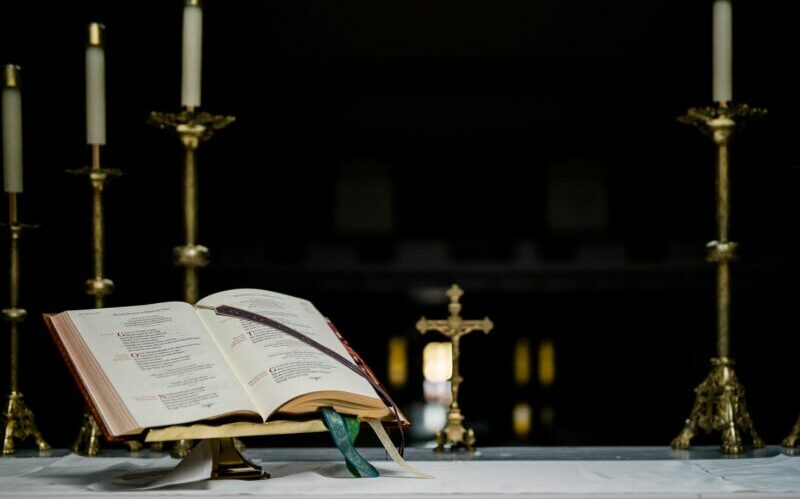Catholic Plenary awakens hope despite womens fading trust in the hierarchy
October 2, 2021
Andrea Dean was director of the office for women in the Catholic Church until the office and her position were defunded. Despite fading trust in the leadership of the church, the Plenary Council has awakened her hopes for change.
As a result of my role as director of the office for women 20172019, and my experience of the Australian Catholic bishops declining support for greater participation of women in decision making, leadership and ministry within the Church, I have found it hard to trust the Plenary Council process.
Contrary to their own recommendations in their social justice statement in 2000, the bishops gradually withdrew funding and staffing for the office for women, leading to its closure at the end of 2019. During the same period the commission for women, established to oversee the implementation of nine recommendations that the bishops published in the annual social justice statement 2000 entitled “Woman and Man One in Christ Jesus_”,_ was downgraded from a commission to council, had its mandate reduced, and finally was dissolved in 2019.
Brushing aside disappointment, betrayal, grief, and pain is not the answer nor is wallowing in the depths of despair. Pope Francis introduces a term “penitential memory” in Fratelli Tutti. He suggests that those who have very contrasting experiences have to speak from the stark and clear truth and learn how to cultivate a penitential memory, one that can accept the past in order not to cloud the future with regrets, problems and plans.
This is part of the way forward, acknowledging the truth, accepting the past. However, Pope Francis is leaping ahead. The Cambridge dictionary reminds us that penitential means showing that you are sorry, especially in a formal religious way, for wrong things that you have done. A formal apology for the broken promises and unfulfilled recommendations would help ease the angst of Australian Catholic women and perhaps they might engage more willingly and trustingly in the Plenary process.
I have experienced a deepening of my spiritual life. While finding myself more and more at odds with the Church and ill at ease with parish involvement, Im delighting in the Gospel, thanks to the resources like the podcast Australian Women Preach and finding community in new places, thanks to groups such as Women and the Australian Church Inc.
So, do I have any hope for the Plenary Council? I do.
Why? First, I appreciate that there is an explicit use of the process of discernment. As a former member of a religious community and part of groups committed to discernment, I have been part of the transformation that can happen through sharing open conversations, hearing diverse perspectives and sharing times of reflection. It is possible for the Spirit of God to work in the assembly and for prophetic visions to emerge.
Second, discernment is not a one-off affair. For those who, having been touched by the living God and desire to live a life in harmony with the Holy Mystery, ongoing discernment is required to adjust ones life path to evolving needs. Even though the commitments from “Woman and Man…” were not fulfilled, it is possible that the experience shifted the Church a little closer to where she should be. Perhaps the Plenary Council could not have been possible in 2000 but it is possible now and it may take us into a hopeful and prophetic future.
Third, I am hopeful because apart from what the Plenary Council produces in terms of decisions a wonderful unleashing of synodality is happening internationally. In Bristol, a synod was held independently of the official Church. There are synods planned for Ireland and there is one underway in Germany. Pope Francis has called a synod of bishops on the topic of synodality for 2023 and has asked that every diocese have a synod before that date.
I am aware of an awakening amongst the laity. It is unacceptable that most Australian dioceses do not have diocesan pastoral councils and that we do not have a national council of the laity. Lay Catholics are recognising their rights and responsibility to speak up and to cocreate a Church that is inclusive, responsible and collaborative. Lay Catholics have recently organised and hosted two convocations in parallel to the Plenary Council to educate and galvanize fellow Catholics across Australia.
The Plenary process has already been effective because it has already changed many people. They have become vocal, reading more, educating themselves about synodality, and they are asking questions. Reformist theologian Hans Kungs advice about Church renewal was to speak up, do something, walk together, be happy with provisional solutions and dont abandon the Church! I take heart from the fact that so many are living out these tenets. Roll on Plenary Council!

